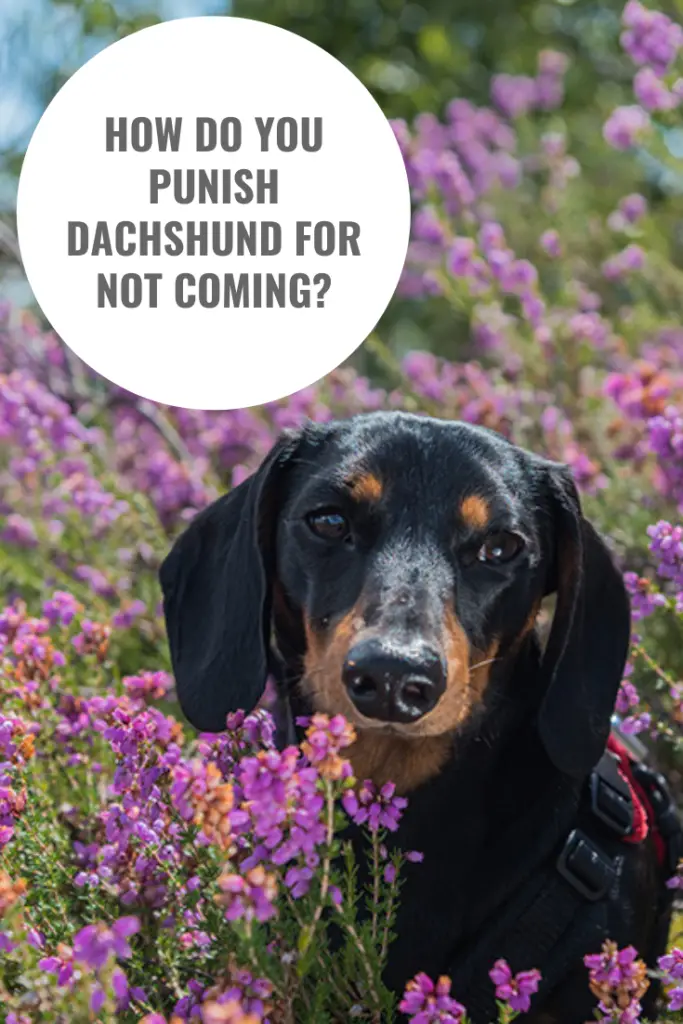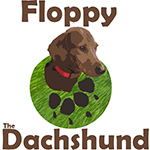Dogs get easily distracted and in some cases, their curiosity drives them toward road accidents. So, it’s important to train your dog to avoid such a mishappening. There are so many things that can distract your dog. “Come” is a basic command, but hard to teach. A proper recall is worth trying because it can keep your dog away from poisonous materials, being attacked by wild animals like raccoons, or jumping into the street.
If a dog is rude, naughty or improper, he can be punished, but you can punish him in a humane way. There is no need to intimidate, fear, or hurt a dog for punishment. There are many reasons why your dog is not obeying or won’t comply. This behavior does not represent a dog’s misbehavior, but a lack of successful training. If you can figure out why a dog does not come when called, you can reverse the disobedience and train your dog to obey this important signal.

How Do you Punish A Puppy?
Watch your dog’s behavior and react accordingly. When your dog misbehaves or does not respond to your command, give him a chance to figure out what he did wrong and then think about the ways in which you might have contributed to his disobeying you and try not to repeat it in the future.
Withhold Your Attention
If your puppy continues to misbehave, then the only thing you can do is not give him attention. Just leave your puppy alone. He will realize he has done something wrong.
Avoid Giving Attention to Your Dog’s Bad Behavior
Sometimes a dog may behave badly to attract attention. In that case, it is better to avoid giving attention to your puppy. Shouting or being angry with your dog is not the solution. Just ignore your puppy while he is behaving badly.
Avoid Hitting Or Shouting
Dogs don’t understand physical violence. In fact, hitting your dog just leads to damaging your relationship with your pet as well as hurting him. Avoid hitting or employing any type of physical violence. Continuous violent behavior will make your dog learn to fear you.
Discourage Your Dog From Biting
Biting is bad behavior that must be stopped. Dogs are intelligent pets. If your dog bites you, remove your hand and then leave the room. This reaction will teach your dog to understand that biting is a bad habit and he will not repeat it again.
Does Smacking a Dog on The Nose Hurt Them?
Believe it or not, this is a common question. Several websites even suggest doing so. This practice may seem innocent, but there are some negative effects associated with tapping a dog in this way. Experts do not recommend it. Tapping a dog on the nose is not good as the nose is the most sensitive part of any dog. It is made up of cartilage and soft tissue, veins and arteries, and nerves. A traumatic nose injury in dogs can cause pain and bleeding and may require veterinarian attention. It is not advised to knock or punch a dog in the nose. Smacking a dog on their nose hurts them a lot and in some cases, a dog may resort to self-defense and bite or harm you.
Hitting a dog’s nose is a bad idea because it can also damage his sense of smell. The nose is an important tool for dogs to understand their surroundings. Always praise a dog when he comes to you. If you hit him when he comes, he will associate it with punishment.

Is Smacking A Dog Illegal?
Hitting a dog is not illegal, but hitting a dog for bad behavior in almost always useless. The main reason you shouldn’t hit a dog is because it is cruel. Dogs are loyal companions with a wonderful character. When a dog upsets his owner, it’s likely not because the puppy is rude or naughty. Rather, a dog simply acts as nature intended. They engage or do not engage in certain behaviors because they do not understand your rules. Below are some reasons why you should not smack or hit a dog.
It Hurts Them
There is a myth that dogs do not feel pain and must be “tough” and well mannered. Dogs have a nervous system so they suffer. Some dogs may not appear to suffer when you scream, but they can suffer without showing it. Hitting a dog can also cause serious injury. So it’s better to not hit or smack your dog.
It Can Cause Biting Out of Fear
When a dog is beaten, he will develop fear toward his owner. If the dog is scared and relies on biting to defend himself, his owner can become injured if the owner abuses their dog. You not want it to get to that point. Biting is a major behavioral problem that is difficult to eradicate.
It Hurt Bonds
Dogs that are beaten or hurt don’t trust their owners. A dog owner should be the best source of trust and guidance. Battered dogs can bend over and become scared when they become pets. They will not reach their full potential because so much of their energy is used up by living in fear of their master.
Changed Behavior
In addition to aggression that can cause potential attacks, hitting dogs may not be safe. They may no longer walk with their heads high and will walk with their tails and heads low. They will live their life anxious, tense, excessively obedient, and fearful. This is why hitting or shouting at your dog is not recommended.
There is no reason to hit a dog. Hitting your dog is not a way to train them, and some dogs can act aggressively out of fear. If he disobeys, call him with a low, but firm voice; if he runs away, and you scream at him, he will not come back because he knows that he is in trouble.
Punishment dealt in a hateful way causes dogs to suffer. Such practices are not only cruel and harsh, but also completely ineffective. Knowing how to punish a dog in a gentle way is much more fruitful. Frequent use of verbal punishment can lead to other stress-related problems, such as sniffing, displacement behavior, termination, disconnection from his owner, and so on.
Conclusion
The most important thing to remember is that punishing a dog does not have to be negative. Dogs need regimen in their lives, and when disciplined at home, both you and your dog will be much happier. Training your dog with positive enforcement is the best way to train them. Knowing how to encourage good behavior from your dog can save you a lot of trouble in the long run so it’s important to learn about the most efficient methods and training techniques.

